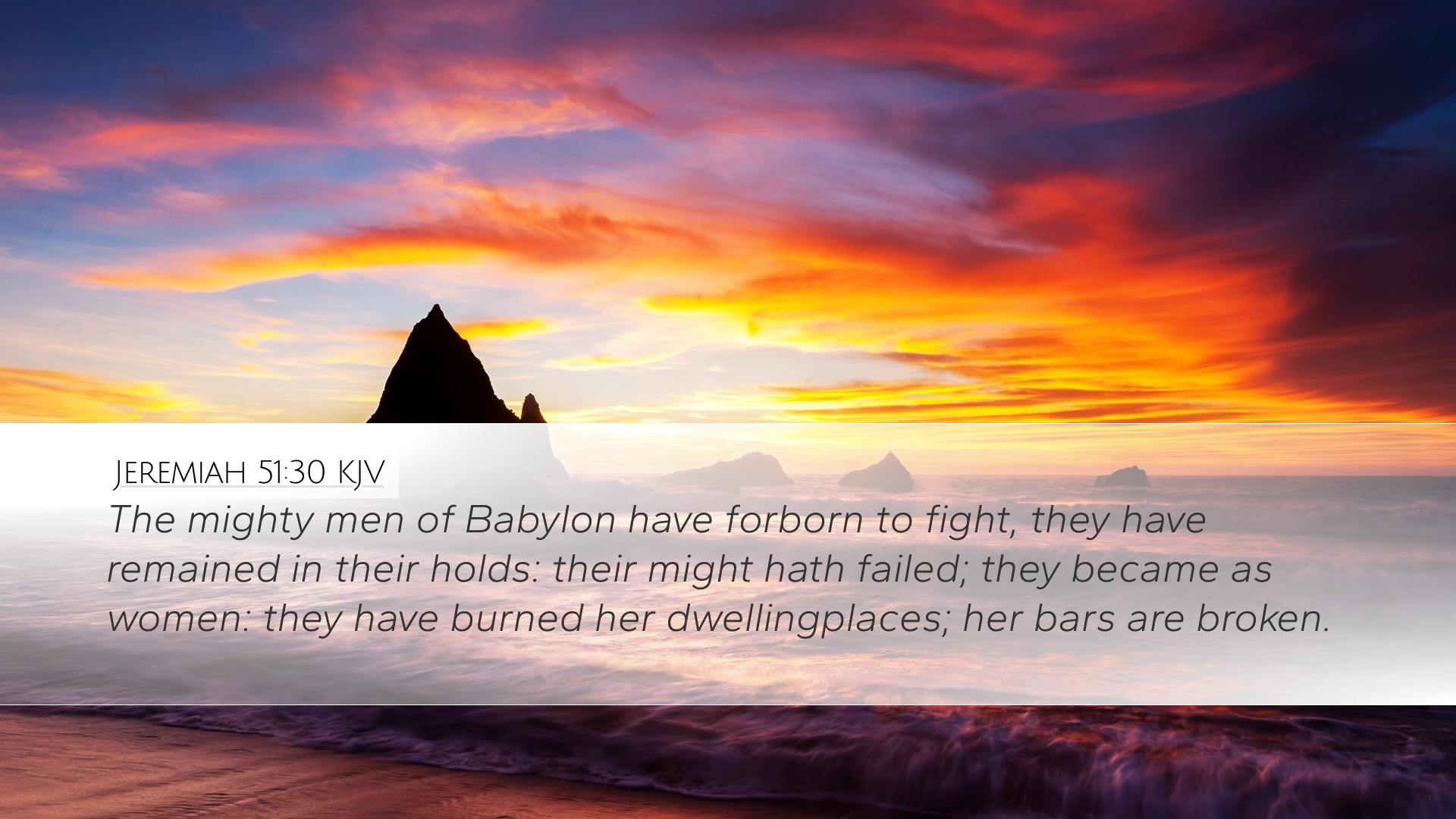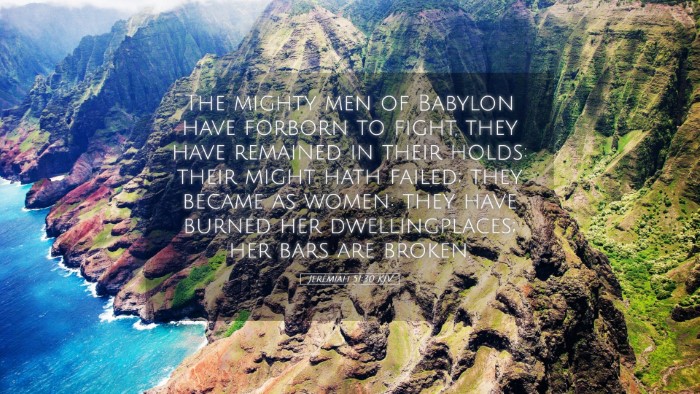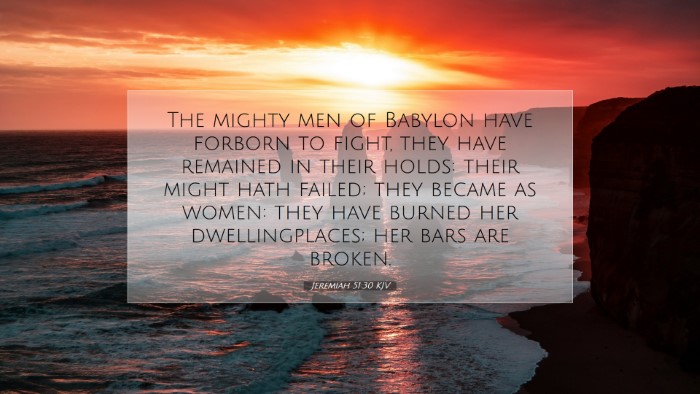Commentary on Jeremiah 51:30
Jeremiah 51:30 states: "The mighty men of Babylon have forborne to fight, they have remained in their holds: their might hath failed; they became as women: they have burned her dwelling places; her bars are broken."
Contextual Overview
This verse is part of a prophectical section where the prophet Jeremiah forewarns of the downfall of Babylon, a mighty empire known for its strength and great military prowess. The chapter delivers God's message concerning the fate of Babylon, portraying the city as an agent of destruction that will eventually face divine judgment.
Commentary Insights
1. The Condition of Babylon's Warriors
- Matthew Henry: Commenting on this verse, Matthew Henry indicates that Babylon’s warriors, once valorous and fierce, find themselves in a state of panic and inadequacy. The phrase "they became as women" indicates a complete loss of manhood, courage, and aggression that defines a soldier's spirit, illustrative of their impending defeat.
- Albert Barnes: Barnes adds that the phrase highlights not just physical inability but a deep-seated emotional and psychological breakdown. The once valiant army, paralyzed by fear and foreboding, had ceased to fight, indicating the larger collapse of the Babylonian spirit.
- Adam Clarke: Clarke elaborates further, suggesting that this transformation was not merely random; it was the result of divine judgment. God's purpose had been set, and the chaos in the hearts of the Babylonian defenders was a direct reflection of the divine decree against them.
2. Divine Judgment and Its Manifestations
- Matthew Henry: He emphasizes that the utter failure of Babylon's might signifies God's direct intervention in human affairs. It serves as a potent reminder that any human strength set against divine will is bound to fail.
- Albert Barnes: Barnes points out that the burning of dwelling places and the destruction of bars denote total collapse—not merely physical destruction but also the eradication of stability and security for the people. At this moment, Babylon’s strength is exposed as a façade crumbling under God’s sovereign hand.
- Adam Clarke: Clarke interprets this event as a cautionary tale to nations about the consequences of pride and oppression. Babylon had symbolized unchecked power and arrogance, setting itself against the purposes of God, which eventually led to its downfall.
3. Spiritual and Theological Implications
- Matthew Henry: Henry urges readers to reflect on God’s sovereignty, reminding them that earthly powers are transient. Just as Babylon, despite its strength, fell to divine will, so do all nations and leaders who oppose God’s purpose.
- Albert Barnes: Barnes sees this as a call for vigilance among God's people. Believers should recognize the eventuality of divine judgment, promoting the idea that even the strongest institutions will not withstand the righteousness of God's plans.
- Adam Clarke: Clarke encourages theological consideration of God's justice. The fall of Babylon presents an archetype for understanding God's righteousness in judgment. Babylon, once the epitome of grandeur, now stands as a testament to God's might over human arrogance.
Practical Applications
1. Lessons in Humility
The narrative emphasizes the need for humility among leaders and nations. Just as Babylon fell, modern nations must acknowledge the limitations and accountability before divine authority.
2. Assurance in Divine Sovereignty
This commentary reminds believers that God’s sovereignty is unwavering. Despite the current circumstances or the appearance of power, God ultimately reigns, and this knowledge provides comfort in uncertain times.
3. Encouragement for Believers
The struggles faced by God’s people amidst oppressive regimes remind them of the promise of divine deliverance. Just as Jerusalem received hope in the prophets’ words, Christians can find assurance in divine promises of redemption and justice.
Conclusion
Jeremiah 51:30 serves as a stark reminder of the fragility of human power and the certainty of divine justice. The insights from various commentaries enhance the understanding of this scripture, emphasizing the overarching theme of God's sovereignty and the inevitable downfall of those who oppose His will. For pastors, students, theologians, and scholars, this verse encapsulates a vital lesson about faith, power, and humility before God.


